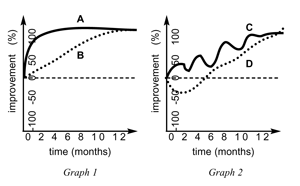

 Qigong Can Mend
Qigong Can Mend 
a
Broken Heart
People in the west are becoming more and more aware of Qigong and its benefits. Vast majority of those who practiced it felt great and even though some who never practiced it still felt great and some others who practiced it never felt anything, these belong to a tiny minority. It only proves that Qigong is not a "cure all" technique and that other aspects of life are as important if you wish to live healthy and feel good. If you ask the average person in the street, if they'd be willing to practice it, they would probably reply with "What the ... is Qigong?" followed by "Of course not! I already have too many things on my plate everyday. I don't need another one to waste my time with." And so, off they go to finish that computer game that was bugging them for days, then they might read their jokes off the internet, go to see the dentist, argue with their partner, have a drink in the pub and a hundred million other "important" things.
But if we rephrased the question and asked Joe Bloggs off the street: "Would you like to be relaxed and happy all day, have control over your emotions, be healthy, addiction free, plus improve your intuition to enormous proportions...?" (all benefits of regular practice of Qigong) he would probably, if not certainly, say: "Yes!" If he's still not sure, just remind him about a couple of other things, such as: "being able to get rid of your asthma and migraines, improve your sight and teeth - so you won't need glasses anymore and you won't need to spend so much money at the dentist; your relationships will improve, you'll lose excess weight..." "OK, OK! That's enough, I want it right now!", says Joe Bloggs eagerly. "Where do I need to go and what should I do to get all that?" "Well, just go and find yourself a good Qigong teacher and then practice it every day, that's all."
Internal shower
And truly, Qigong is good for everybody and should be practiced on a daily basis. To our western mind, it is so normal everyday to have our shower, brush our teeth, go to the toilet and wash our hands - all very important activities to keep us clean and healthy. But, did you know that if you practice Qigong for as little as 20 minutes a day, it can do much more for your skin than all those fancy creams and moisturisers, much more for your teeth than using all those miracle mouth washes and more for your hair than expensive conditioners? But how is that possible? How does Qigong work?
Let's make a comparison. When you have a shower, you use water and soap to cleanse the skin on the outside. When you brush your teeth, you use water and toothpaste to clean them on the outside. Very similar to this external or material "dirt" is another type - internal or energy "dirt" which is really a blockage of energy meridians (refer to diagram 1) in our body. This internal (invisible) dirt, same as the external (visible) dirt happens on a daily basis. By practicing Qigong, you give yourself an "internal shower" and you get cleansed, but it doesn't mean you stay like that forever. That very day, the weather changes, you eat unhealthy foods, get stressed or wear tight socks and the energy gets blocked again. Depending on which meridian gets blocked, you have different reactions to them. For example, if the liver meridian gets blocked, (usually by being exposed to wind or draft, eating sour food, wearing tight clothes that are pressing on the inner side of the legs or shoes pressing hard on the big toe) you might experience anger, sight problems or depression. But if you have your daily "chi energy shower" it cleanses it (ie. puts it back into balance), and the problem does not get too severe. To understand the importance of daily Qigong practice, just think of what would happen if you were to stop taking your regular showers forever.
But let's go back to the beginning of the article, where we said, some people do not practice Qigong and are doing alright, and some people do practice, but they are not alright. So, how do we explain that, you ask? Well, to clearly see the effectiveness of Qigong it should be studied and analysed by using large random samples of people to prove it, as many such studies in China over the years have indicated. Individual cases are often misguiding and may vary from things like "It saved my life!!!" to "I felt nothing". Plus when you ask a westerner, "Have you done Qigong?" they would say something like; "Yes, for three months" (meaning, for quite some time). It's like saying, I had showers for three months but they didn't do much for me." Or a toothless man who says with a wide smile on his face, "Yeah mate, I brushed me teeth once in 1982, didn't feel I needed to, so I didn't see the reason to continue".
On the other hand, some people who claim they don't practice Qigong but are healthy and feel great, really practice it, but they don't even know they do. Some people are natural and have the ability to rebalance their energy, even develop some psychic powers and heal others with their energy. But that still doesn't mean they need not practice Qigong. Naturally intuitive and gifted people can reach much higher levels and learn how to use their giftedness as well as protect themselves from misusing it, if they practice advanced Qigong styles. But, by the same token, they may even lose it if they do not work on cultivating it.
It's never too late to start practicing
The benefits of Qigong are accumulative and in the initial phase when the rebalancing and bigger energy shifts are happening (which can take weeks, months or even years) it works in different ways for different people. Some get instant results (A), some gradual (B), some have ups and downs (C) and some get worse before they start improving (D) (refer to graphs 1 and 2). But once the energy is in balance comes the period of relative stability that to many looks as though nothing is happening. And that's when many (ignorant) Qigong practitioners quit the practice thinking: "Why am I still practicing this? I got rid of my health problem(s) and now it seems nothing else is happening." Alas!

Qigong can get rid of health problems very quickly, but its strongest point is its long term effects and preventative qualities. Many studies have shown that people who practice Qigong for many years when compared with people of the same age and type who did not practice Qigong look younger, live longer, are more agile, healthier, happier and self reliant. There is a much higher percentage of heart disease, rheumatism, high blood pressure, stroke, diabetes and many other diseases among those who don't practice Qigong. Among them, many have lost most of their sight or hearing, cannot bend, move or even become senile. But, interestingly enough, it seems it's never too late to start practicing Qigong. There are many people who only took up the practice in their seventies or eighties and still got excellent results. It is quite common that others start noticing how much younger they start to look. For that reason, Qigong is highly recommended to older people, whether they suffer from any health problems or not.
As we all know, with age comes the gradual deterioration of the body and its functions. Some functions deteriorate as a result of the breakdown of others. For example, if they have problems with digestion or their liver, of course that would affect other systems such as circulation and immunity. Qigong can not only directly help digestion and liver problems but, indirectly, other systems as well. Many old people have problems with concentration, poor memory, bad circulation, incontinence, insomnia and Qigong can help all those problems. Plus, it gives them something to do, which is another common problem they often face. And that "something" is relaxing, very easy to do and fun at the same time.
It's never too early to start practicing
After reading a bit more about Qigong and finding out how good it can be for health, one often gets the wrong impression that Qigong is only for treating diseases. The truth is, Qigong is for rebalancing and strengthening chi energy and can be very effectively used in every aspect of our life - from general wellbeing, through to business, relationships, leisure, to developing higher psychic abilities and adopting a more spiritual lifestyle. Health is something that happens in the process of reaching higher levels of energy rebalancing and no matter how fascinating some cases may look, it's all seen as lower levels of Qigong (a so called "rough rebalancing"). Only after energy is back in balance, one can move to the next level. Most masters started practicing Qigong when they were only 4 or 5 and were never sick (most of them never had a cold or flu). Which means it's also never too early to start practicing Qigong.
But, since the majority of people who take up the practice are neither too old nor too young, let's cover some interesting details and facts about non-health related benefits Qigong can bring to the average person.
Love: Qigong can mend a broken heart!
Qigong is known to be very effective in reducing stress and balancing the emotions, hence making one less vulnerable to all kinds of psychological impacts. Their reactions become less emotional (or should we say less dramatic) and they are able to think things through. Not only can they choose to forget the past but they become more optimistic towards the future, more relaxed, even more loveable.
Example 1: A twenty-something year-old fellow who took up Qigong primarily because of a relationship breakdown that made him suffer badly, got over it within a month's time and was happily married a year later with another.
Example 2: A thirty year-old male who did Qigong for less than a month had just ended a long relationship, admitted feeling very strange for not feeling down as a result. "Previous relationships, that were not as strong, used to cause me much more pain and heartache, but this time I feel as if am over it the very next day", he said.
Example 3: Even more strange is feedback that came from a Qigong practitioner who is happily married, but for some reason started becoming a magnet to many women wherever he went, ever since he started practicing Qigong. A few of them approached him and asked him out, he had to refuse them. "It has never happened before", he said. "I don't understand it."
Work: Qigong can improve work relationships!
Qigong is known to be very effective in reducing stress, making one friendlier, more adaptable to other people, more confident and (probably as a result of all of the above) more prone to delivering better performance.
Example 4: A lady in her fifties who had problems with another person she shared an office with, admitted that after practicing Qigong for a couple of months, was no longer disturbed and angry by them even though they would do the same or worse things than before. "Before I could not stand him", she said "but now, I simply brush it off and get over it in no time."
Bad temper: Qigong can change one's personality for the better!
Example 5: A not-so-friendly and very demanding person joined Qigong classes in order to treat food allergies. She received excellent results within a couple of weeks but because of her odd personality, most people in the class were ignoring her. However, after another couple of weeks she became much nicer and friendlier that everybody noticed and changed their attitude towards her.
Example 6: After practicing Qigong for several years, an elderly gentleman admitted that his very bad temper had changed for the better. "I used to have this uncontrollable anger all my life that I knew wasn't good, but I just couldn't help it. Now it's rarely there and I have control over it." Well, what can I say? I knew this man well, it was my father and, even though I noticed the change myself, I was even more happy to hear it coming directly from him. Not only were we, his kids, afraid of him the days he was angry, but so were his workers and many other adults. When he brewed no one dared to speak. Well it all changed for good after only a few short years of Qigong practice.
 Diagram 1:
Liver Meridian
|